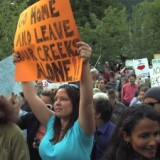Never
a Better Time to Fight Back
Well,
this is it.
This,
as they say, is the moment we’ve all been waiting for. As
biologist Alexandra Morton embarks this week on a historic walk for
wild salmon down Vancouver Island, her journey serves as a symbol to
the people of this province that the game is truly afoot. Now is the
time to reclaim this place we call British Columbia from those who
have stolen it from us.
Following
years of frustration for a small group committed British Columbians –
toiling in obscurity to rouse their fellow citizens and governments
to action on numerous vital issues…After myriad red flags unheeded,
wanton environmental disregard, excessive and oppressive corporate
control over our public policy – after all this, a window. A door
– open if just a crack. And the people who led us here need all of
our help to kick it down. For the first time in years, that seems
surprisingly possible.
You
see, by taking from the vast majority of the public to give to the
tiny minority of the wealthy and powerful, our government leaders run
the risk of eventually pissing off everyone.
And
that is precisely what has happened.
Take
your pick – just about every Canadian now has an axe to grind with
Gordon Campbell and Stephen Harper. Let me list just a few: cuts to
arts, youth sports, education, health care; tax cuts for the rich,
while levying new burdens on us regular folks; the perpetual
disregard for our less fortunate souls; privatizing or breaking up
virtually every public resource and asset of value – from BC Rail
to BC Hydro; the total neglect of our wild salmon and the impacts of
Norwegian fish farms on our environment; the giving away and
destroying of our most precious natural resources – from private
river power, to Site “C” Dam, to turning lakes into toxic mining
dumps; refusing to get serious about climate change by paving
blacktop over farmland while public transit funding languishes…See
anything you recognize? Of course you do. Unless you happen to be a
billionaire or close friend of Gordon Campbell, in which case, you’d
probably prefer things to remain as they are.
4
big opportunities to fight back:
#1 Pipeline, Tankers
Rather
than a single watershed moment over the past several years where the
momentum has suddenly shifted in the public’s favour, there have
been a series of milestones, one after another, each building toward
the opportunity now before us.
That
said, if I had to point to a single moment where the ground really
shifted, it was at a recent press conference in Vancouver, organized
by the Coastal First Nations and their many supporters. The 150
groups and individuals represented – First Nations from Northern
Alberta to Kitimat, conservation groups, and prominent Canadians –
joined together to tell the world they will not stand for the
proposed Enbridge Tar Sands Pipeline and supertankers on our precious
coast.
It
wasn’t so much what they said, but the way they said it that
struck a chord with everyone in the room. It was the deep,
palpable resolve that underlined every word. They were not demanding
to be consulted and accommodated – they were marching right past the
usual window dressing and simply saying: “No. This pipeline will
not be built. Those ships will not set sail. Period.” And they had
the full force of the coastal business community, leading Canadians,
local and international environmental groups behind them. To Big Oil
and their sycophantic servants in government, this must have been a
scary moment. And as the national media coverage rightly observed,
the stage is now set for the biggest environmental battle in the
province’s history – and this time, for once, the people hold the
cards.
#2
Private Power, Site “C”
In one
fell swoop, earlier this week, Gordon Campbell managed to undermine
his whole private power program and tick off one of his most
historically safe constituencies. By committing to build the final
mega-dam on the Peace River, Campbell removed all doubt that BC
simply doesn’t need the costly private river diversion projects he
has been pushing on the public, handing our watersheds over to the
likes of General Electric. Unlike these seasonal projects that only
produce power when we don’t need it, Site “C” would add a huge
block of year-round firm energy to BC’s public power system.
Only,
we don’t even need that. You see, contrary to the fibs Campbell
has been telling the public, BC is already self-sufficient in
electricity – especially if we get serious about conservation. But
if Site “C” is an unnecessary environmental blight, then private
river power projects are an outright scam. And that message is
getting through to more British Columbians every day. Witness the
record turnouts to public meetings on proposed projects – from
Kaslo to Pitt Meadows to Powell River. The public has shown it is
squarely against private power projects and ready to stand up for
their public power and watersheds.
Now, a
word about Site “C”. People in the Peace region have a
persistent feeling of being ignored by us city folk and our political
and corporate nabobs in Victoria and Vancouver. And they’re right.
From the stress on their communities from aggressive natural gas
exploitation in recent years, to the enormous price they have paid to
build giant dams that service the rest of the province – they have
been used and abused for far too long.
My
family, for instance, lost our ranch on the Peace River – the Gold
Bar Ranch – to build the first of these behemoths, WAC Bennett Dam.
So I know a little about how folks feel about Site “C”. But my
family continued to vote Socred decades after the dam, and for
whatever party of the Right federally and provincially thereafter.
This is because: 1. These governments at least largely did what they
did with the overall public interest in mind; and 2. In Peace Country
you just don’t vote NDP. Which is why in this past election, the
independent candidate in the Peace River North riding captured
32% of the vote – an astonishing and unprecedented result that
showed just how disenchanted folks are up there with their provincial
government. When the conservative party of record is in real danger
of losing the Peace, there’s something blowing in the wind.
These
folks have battled and stopped Site “C” twice before; I wouldn’t
put it past them to do it again…This time they could use a little
help from all of us.
#3
Vander Zalm and the HST
The HST
has produced a crack in the political dam. Over the next several
months it will come to be understood not only as referendum on an
unfair tax to which well over 80% of the province is outright opposed
– but as a referendum on Gordon Campbell’s leadership. The rift
over the HST is particularly perilous to Campbell because of the
people on the other side – beginning with former Socred Premier
Bill Vander Zalm. What it highlights is the division growing within
the Right, separating veteran fiscal conservatives from their
neo-liberal Fraser Institute heirs, who have spent the past decade
undoing generations of Socred initiatives – privatizing BC Rail,
breaking up WAC Bennett’s crowning legacy, BC Hydro, and handing
the party of the Right over to global corporations, to the detriment
of the BC public and environment.
Rarely
do you get a “do-over” in the midst of an election term – the
chance to recognize a mistake and rectify it. But the HST presents
just such an opportunity. For make no mistake – at a historic low
in popularity, both for his party and as a leader – Gordon Campbell
is vulnerable. And his political career does not survive a
successful referendum and defeat of the HST. Either he steps
down or he goes the way of Caesar on the Senate floor. Either result
would call for champagne – not sparkling wine, but the real stuff.
And if you want to experience that sweet, effervescent taste like I
do, you’ll get behind the movement to scrap the HST.
#4 Salmon
Farms – Alex Leads the Way
Much
more will be written and videographed in these pages about Alexandra
Morton’s historic walk for wild salmon, so I won’t go into detail
here…Except to say that after more than a decade of tireless work,
victory is in sight for Alex and her supporters. And victory means
getting open net salmon farms out of our coastal waters – to protect
our embattled wild salmon.
The
momentum swelling on this issue is enormous: from the increasing
vulnerability of the global salmon farming industry from
environmental disasters in Chile, Norway, Scotland, and Canada; to
the global media attention now on the subject; to the dumping of
farmed salmon by some of its biggest retailers; to seminal legal
victories in Canadian courts: Alex and company are kicking butt these
days.
The
same resolve that emanated from First Nations leaders in opposition
to the proposed pipeline and tankers was evident last week in Chief
Bob Chamberlin’s statement to the media as the certification
hearing began for his historic class action lawsuit, suing
governments over the impacts of fish farms on his people’s
traditional territory: “We will not stop. We will protect the
wild salmon and we will protect the environment of our people.”
So
Alex’s march takes place against the backdrop of all these
developments – and just as an unprecedented federal judicial
inquiry gets underway to investigate the causes of the collapse of
our Fraser River sockeye. What a way for the public to demand the
Cohen Inquiry thoroughly examine the impacts of salmon farms – by
joining in Alex’s march and final chorus in Victoria on May 8.
So from
the Kootenays to Campbell River; from the Peace Valley to Haida Gwaii
– let our free and democratic voices ring out and shake the very
foundations of our Legislature and Parliament. Let them hear from
us, the people. Join Alex Morton on her historic march. Rally
behind First Nations and their bold stances on fish farms, pollution
from mines, pipelines and tankers. Sign Bill Vander Zalm’s
petition – heck, call the local campaign office and see how you can
help. Tell your political representatives what you expect from them.
Write letters to your paper, call your favorite radio show, go to a
rally or townhall meeting. Pick up a placard and hit the
streets…Whatever you do, get involved. Because now is your
moment to truly make a difference.
The
stakes have never been higher. Let us not waste this historic
opportunity.


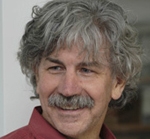
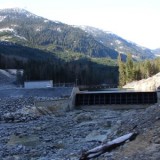
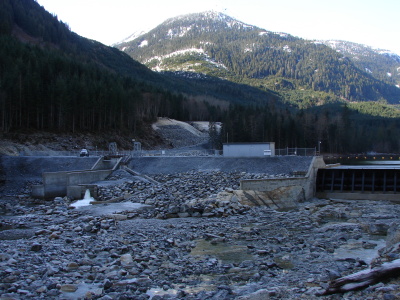
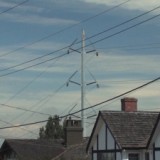
 My experience with this issue dates back to two years ago, when I spent several months going back and forth on
My experience with this issue dates back to two years ago, when I spent several months going back and forth on  That summer, 2,500 citizens of all ages came together for a rally at South Delta Secondary – today overshadowed
That summer, 2,500 citizens of all ages came together for a rally at South Delta Secondary – today overshadowed  The resulting EMF levels (the measurement for potentially cancerous electromagnetic radiation) for a child
The resulting EMF levels (the measurement for potentially cancerous electromagnetic radiation) for a child  I made several predictions when all the fuss over the power lines was going down. One was that we
I made several predictions when all the fuss over the power lines was going down. One was that we 